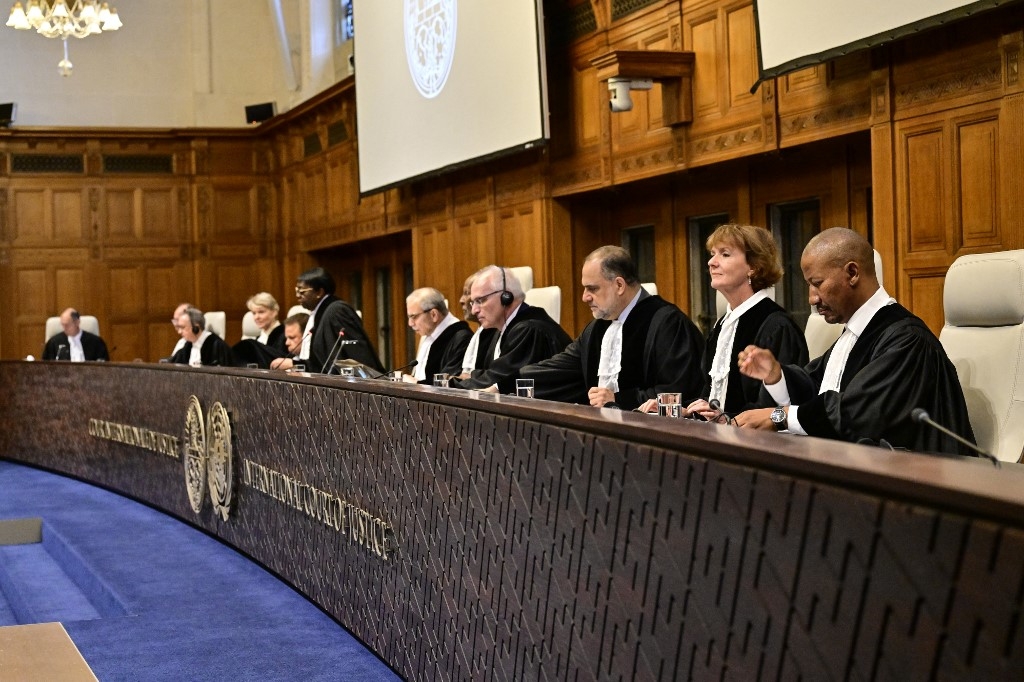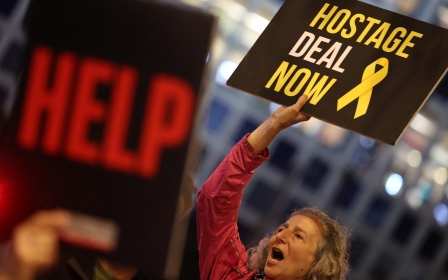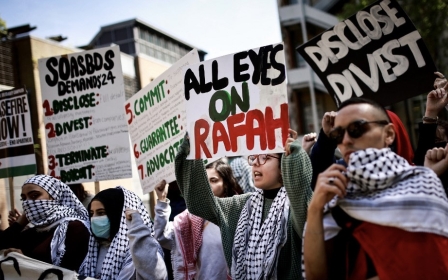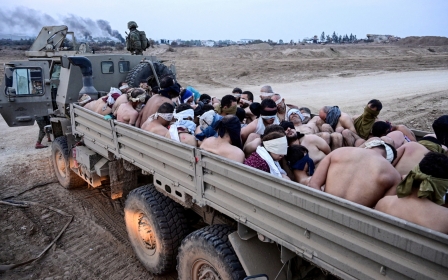ICJ orders Israel to halt Rafah offensive and open crossings to aid

The International Court of Justice (ICJ) has ruled that Israel must halt its offensive in Gaza's Rafah, following a plea from South Africa.
The court issued a ruling in January that Israel must do everything to prevent genocidal acts being committed in Gaza, but stopped short of ordering a ceasefire.
However, South Africa argued that Israel's recent ground attack in Rafah, preceded by months of bombardment, changed the situation on the ground and should compel the court to issue fresh emergency orders.
ICJ President Nawaf Salam said the humanitarian situation in Gaza was now "disastrous" and said earlier measures issued were insufficient.
"Israel must immediately halt its military offensive and any other action in the Rafah governorate which may inflict on the Palestinian group in Gaza conditions of life that could bring about its physical destruction in whole or in part," he said, reading out the judgment to the court.
New MEE newsletter: Jerusalem Dispatch
Sign up to get the latest insights and analysis on Israel-Palestine, alongside Turkey Unpacked and other MEE newsletters
He added that Israel needed to reopen the Rafah crossing and "ensure the unimpeded access of commissions of inquiry or investigative bodies mandated by the UN to investigate allegations of genocide".
In its fourth submission to the ICJ last week, South Africa had requested new emergency measures over Israel’s incursion in Rafah as part of its ongoing case accusing Israel of genocide in Gaza, including a halt to all military operations in the enclave.
The measures were in addition to the nine provisional measures requested by South Africa in its first submission to the court in January, which included a call for Israel to halt military operations in Gaza.
The court did not deliver this key order, but called on Israel to ensure its troops do not commit genocidal acts against Palestinians in Gaza, allow more humanitarian aid to flow in and preserve any evidence of violations.
Israel's invasion of Rafah, the southernmost city in Gaza, where hundreds of thousands of internally displaced Palestinians have sought refuge, was heavily opposed by many in the international community, including Israel's allies.
But despite public US opposition, the Israeli military earlier this month launched a ground assault on the city - and seized the crossing with Egypt used to bring aid in - at a time when mediators were in Cairo, attempting to work out a ceasefire.
Local media reported Israeli planes bombing Salah al-Din Gate leading to Rafah crossing and the crowded Shabura camp at the heart of the city shortly after the ICJ decision was made.
Israeli politicians reacted with anger to the ruling and threatened retaliation against the Palestinians in response.
"The order of the antisemitic court in the Hague should have only one answer - the occupation of Rafah, the increase of military pressure and the defeat of Hamas, until complete victory in the war is achieved," said National Security Minister Itamar Ben Gvir, speaking to Israeli media.
Far-right Israeli finance minister, Bezalel Smotrich said that Israel would not agree to stop its war on Gaza, as that would be tantamount to it "decree[ing] itself to cease to exist."
"We continue to fight for ourselves and for the entire free world. History will judge who today stood by the Nazis of Hamas and ISIS," he said in a post on X.
Opposition leader Yair Lapid also criticised the ruling, calling it a "a moral collapse and a moral disaster" for failing to take into account Israeli captives in Gaza.
The Palestinian Authority, however, welcomed the ruling.
"The presidency welcomes the decision issued by the International Court of Justice, which represents an international consensus on the demand to stop the all-out war on Gaza," Palestinian presidential spokesperson Nabil Abu Rudeineh said.
Hamas, the Palestinian group that runs Gaza, also welcomed the ruling but said it did not go far enough and urged for an end to Israel's offensive on all of Gaza.
"We call upon the UN Security Council to immediately implement this demand by the World Court into practical measures to compel the Zionist enemy to implement the decision," Hamas official Basem Naim told Reuters.
Middle East Eye delivers independent and unrivalled coverage and analysis of the Middle East, North Africa and beyond. To learn more about republishing this content and the associated fees, please fill out this form. More about MEE can be found here.




